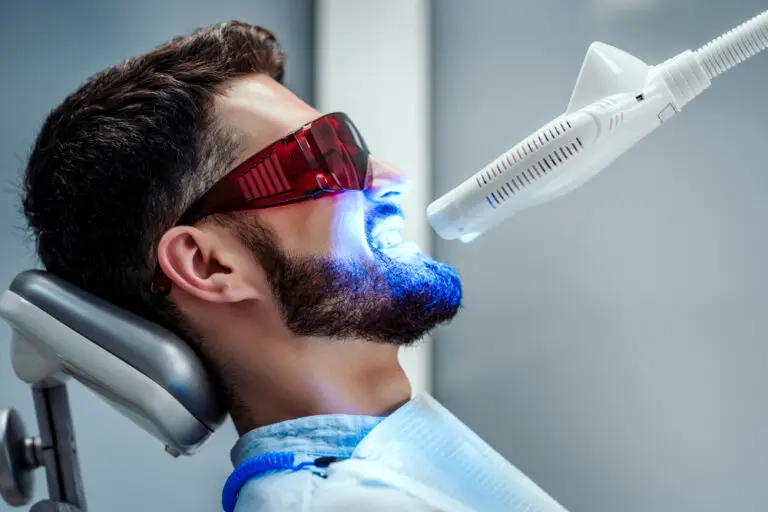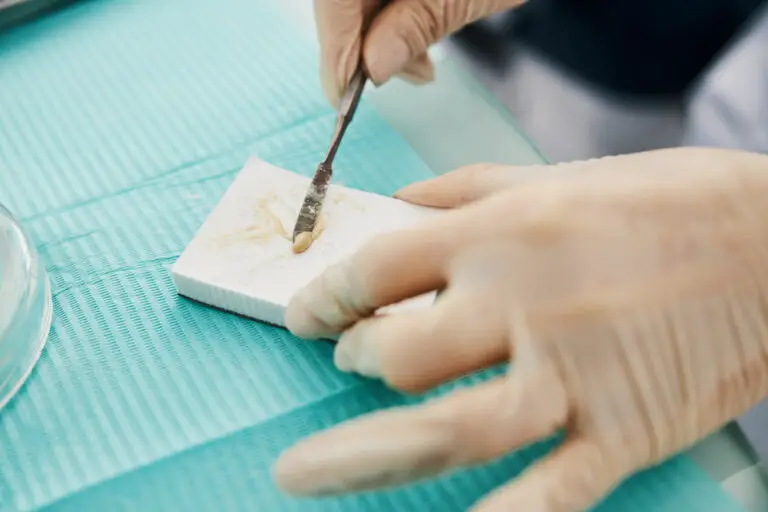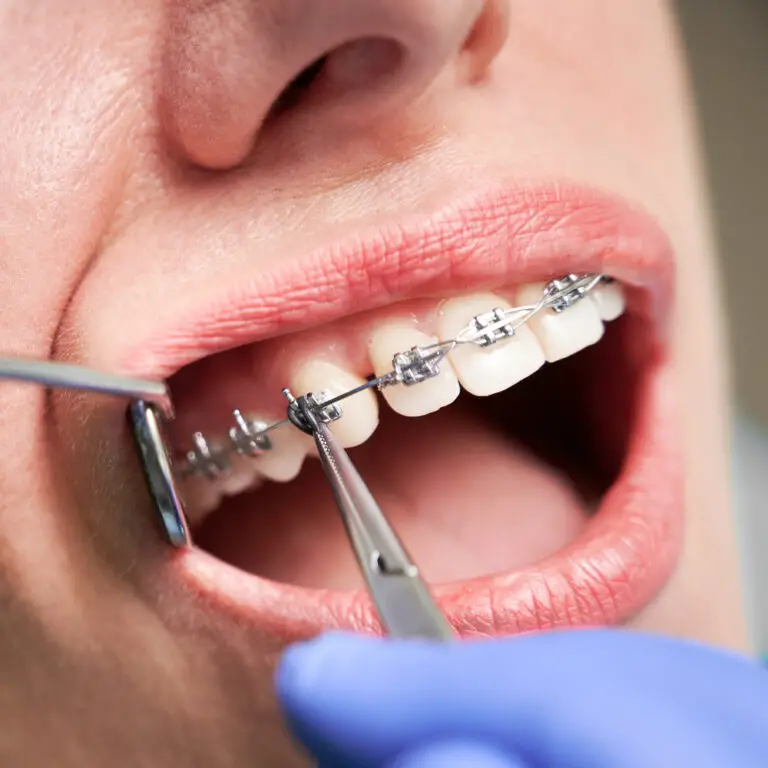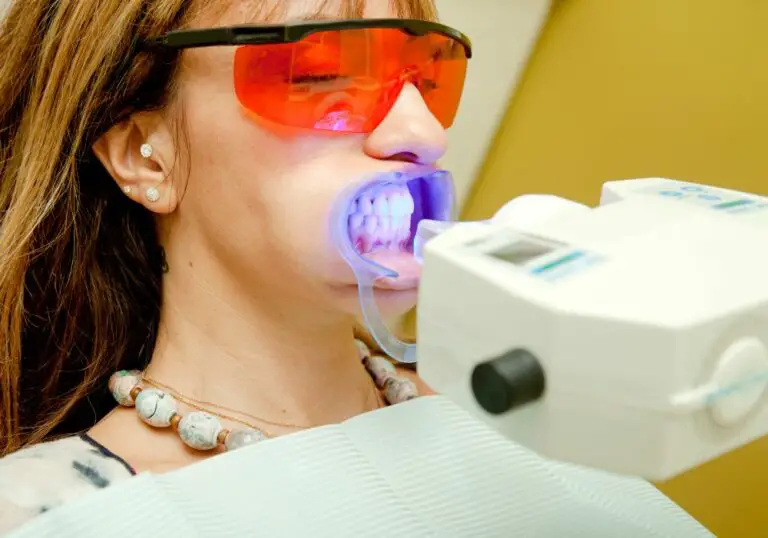Steel is one of the most common materials used in everyday life, found in everything from silverware to tools to medical equipment. A natural question arises – can regular contact with steel damage teeth? This comprehensive article examines the effects of various types of steel on dental health and steps you can take to protect your smile.
How different types of steel can damage teeth?
There are a few key ways that exposure to bare steel surfaces can take a toll on your tooth enamel, dentin, and overall dental health:
Carbon steel
Uncoated carbon steel, while very strong, can corrode and rust over time with use and exposure to moisture. Rust contains iron oxide which can create stubborn stains on teeth with prolonged contact.
The rough surface of untreated carbon steel can also scratch and wear down less resilient tooth enamel. Frequent scraping or biting of carbon steel utensils, nails, or tools can cause visible grooves and erosion of the enamel layer over time.
Stainless steel
Stainless steel contains chromium which gives it good corrosion resistance properties and prevents rusting. This makes it gentler on tooth enamel than carbon steel. However, uncoated stainless steel utensils still pose a risk of surface scratches and chipping with chronic use.
Lower grade stainless steel may also leach trace amounts of nickel over time, especially when exposed to acidic foods. Nickel allergies triggered by metal cookware are not uncommon.
Sterling silver
Sterling silver contains a high percentage of copper along with the silver, which gives it a lovely look but also makes it less inert. Sterling silver cutlery can leave stubborn dark stains on teeth. The metal can also wear down enamel with frequent rubbing and scraping actions.
Cast iron
Uncoated cast iron is highly reactive with acidic foods. Tomato-based sauces and citrus juices leach iron from the pan surface. Consuming these foods and drinks after cooking in bare cast iron cookware can stain teeth over time.
Enameled steel
Steel pots, pans and utensils with a fired glass-based enamel coating are tooth-friendlier. The smooth, non-porous enamel surface minimizes metal leaching and prevents scratching of enamel. Just avoid chipping the coating by banging cutlery or biting down on enameled items.
Factors influencing the impact on teeth
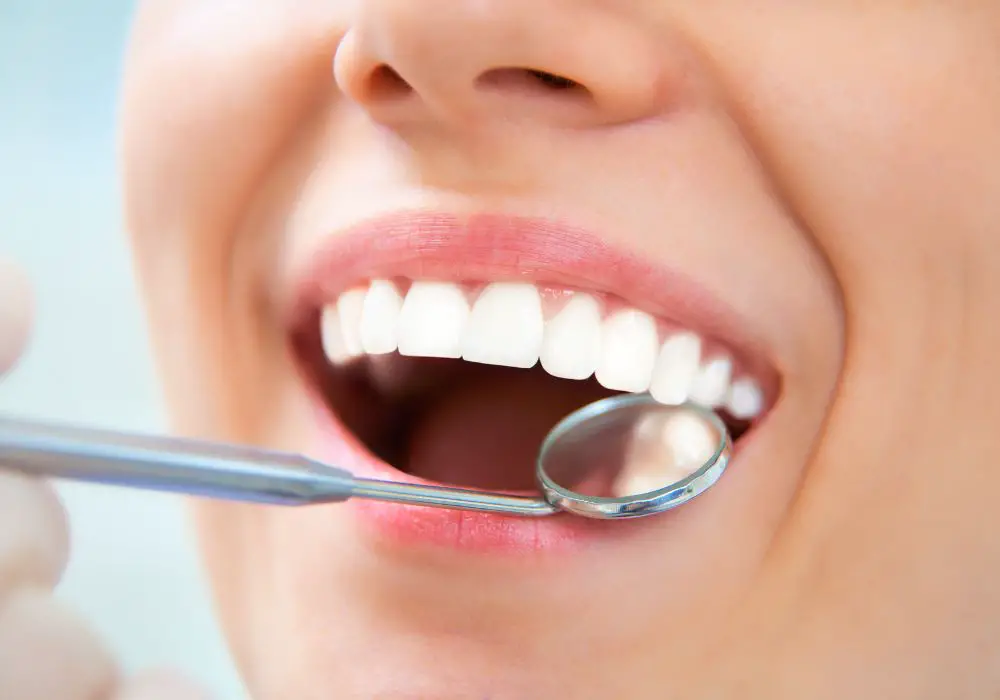
Several variables determine the extent of damage steel may cause to your dental health:
- Hardness and grade of the steel – High carbon steel is hardest while stainless is more gentle.
- Coatings like enamel minimize bare metal contact with teeth.
- How rough or smooth the steel surface is – Jagged edges and points concentrate force.
- Frequency of contact – Chronic long-term use causes more issues than occasional contact.
- Force used – Aggressive biting or scraping is more damaging than gentle contact.
- Foods and liquids in the mouth – Acidic foods like juices soften enamel, making it more vulnerable to wear.
- General condition of your teeth – Weak, cracked or thin enamel is more easily harmed than healthy, strong enamel.
Signs your enamel may be getting damaged
Watch out for these common signs of enamel wear, cracks, or chipping from excessive steel contact:
- Increased sensitivity, especially to hot and cold foods and drinks. Sensations tend to linger.
- Visible cracks, fractures, or chunks missing from the edges of teeth. These may be stained dark or look jagged.
- Thinning or see-through spots in enamel, indicating advanced wear. Yellowish dentin starts showing through.
- Noticeable scratches, grooves or depressions on otherwise smooth enamel. Using a fingernail reveals the divots and texture changes.
- Rapidly developing tooth decay and cavities, necessitating frequent dental fillings.
- Dark grey, black or rust-colored stains on teeth that don’t lift with professional cleaning. Metallic tastes may occur.
Seeing your dentist promptly when you notice any such symptoms can help minimize permanent damage.
Professional treatment options for steel-damaged teeth
If the enamel or inner structures of your teeth are already affected by excessive steel exposure, a dentist has several effective options:
- Dental fillings and bonds – Fillings securely repair fractured edges or significant chips. Bonding agents re-adhere broken chunks of enamel.
- Crowns and veneers – These fully encase damaged teeth in porcelain, ceramic or composite covers for protection and aesthetics.
- Root canals – Fractures extending deep within teeth require root canals to remove infected inner pulp tissue.
- Tooth extractions – Severely cracked or fractured teeth may need removal if other options are not viable.
- Dental implants – Implants act as replacement tooth roots to support artificial crowns where needed.
- Enamel microabrasion – This gently sands and refinishes the outermost enamel layer to remove scratches and stains.
Seeing a dentist quickly when dental injuries occur gives the best chance of saving natural teeth structure and avoiding more complex procedures later on. Try to avoid delaying treatment.
Tips to prevent steel from damaging your teeth

Practical everyday measures can help minimize contact between steel and your teeth:
- Use wood, plastic, silicone or bamboo utensils instead of steel for cooking and eating.
- Select stainless steel water bottles and use straws to drink, avoiding direct contact with steel rims.
- Opt for smooth, polished stainless steel or titanium toothpicks instead of regular steel ones.
- Replace any rough steel tongue piercings with smooth biocompatible plastic or nylon bars.
- Cut harder foods like apples into small pieces before eating to avoid biting directly on steel cutlery.
- Hold forks and spoons properly to minimize scraping food off the utensil with your teeth.
- Brush twice daily with a soft-bristled toothbrush and fluoride toothpaste.
- Chew sugar-free gum to stimulate more saliva production which strengthens and remineralizes enamel.
The takeaway
Steel does require some precautions around teeth. But don’t assume all steel is necessarily tooth-unfriendly. With care in usage plus good oral hygiene habits, you can continue enjoying your favorite foods and drinks from steel containers without damage. Stainless steel and well-coated items are gentler options. Getting prompt dental care also saves teeth from permanent steel-related injury. A little prudence keeps your smile steel-free.
Frequently Asked Questions
Can stainless steel damage teeth?
Stainless steel is less likely to damage teeth than other types of steel because it contains chromium that forms an oxidized layer resistant to corrosion. While not completely inert, stainless steel is gentler on enamel than uncoated carbon steel or iron which can deeply scratch and wear down enamel over time.
What to do if steel damages your tooth?
- Rinse your mouth out with warm water and apply a cold compress to reduce any swelling.
- Avoid eating on the affected side and be gentle brushing near the injury.
- Make an emergency dental appointment immediately for an exam and repair like bonding or crowns.
- Ask your dentist about options to restore enamel like microabrasion or remineralization treatments.
Is it OK to use a steel tongue cleaner?
It’s best to avoid steel tongue cleaners as the rough scraping can damage the soft tissues of the tongue over time. Opt for gentler plastic or copper tongue cleaners instead. Make sure to rinse the cleaner well after each use.
Can biting a steel spoon damage teeth?
Biting down on hard steel spoons or other utensils can potentially crack, chip, or fracture teeth. The force of the bite can focus a lot of pressure on a small surface area of the teeth. Try to avoid placing spoons between the teeth and switch to softer utensil materials like wood, silicone, or plastic instead.
What metals are safer for teeth?
Gold, titanium, and orthodontic stainless steel alloys are more tooth-friendly metals. They resist corrosion, are biocompatible, and do not wear down enamel much. Using metal dental tools made with these materials reduces risks of enamel damage compared to sterling silver or uncoated steel.


